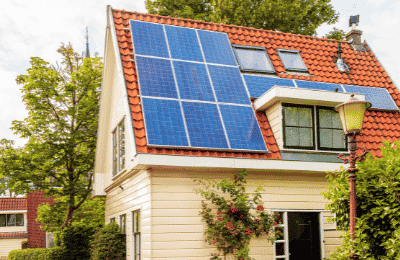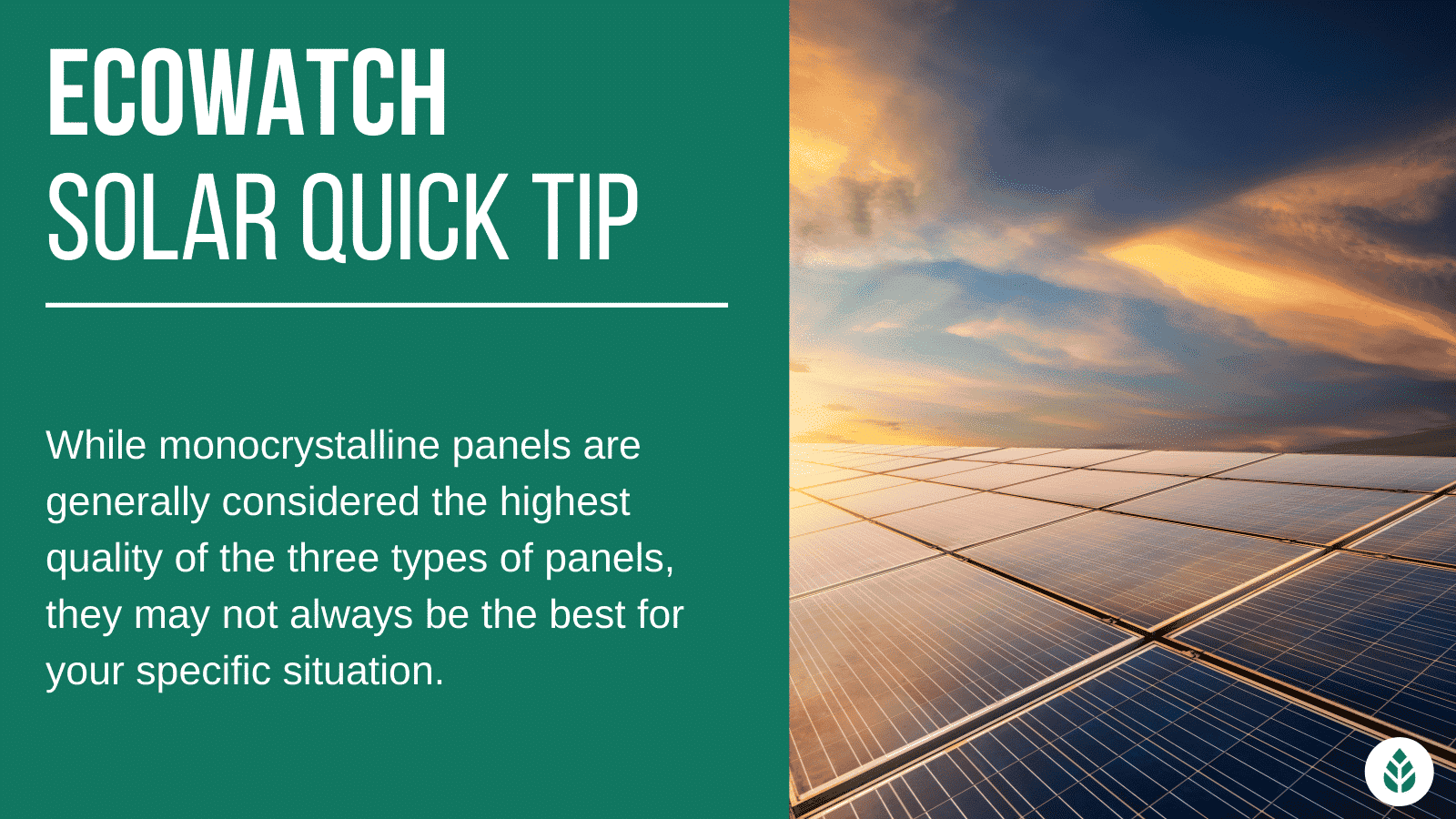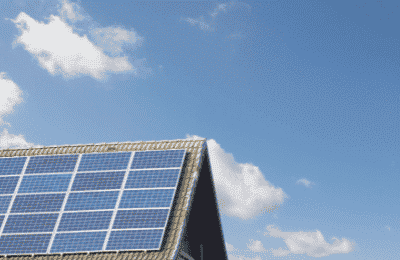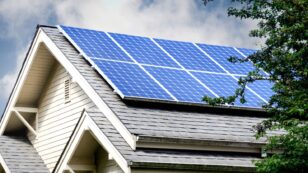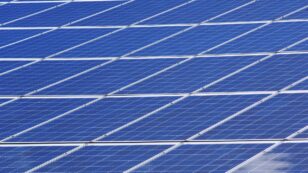 Reviews
Reviews
Top 4 Best Solar Companies in Alabama (2024 Reviews)
In this guide to the best solar panel installation companies in Alabama, you’ll learn:
- What are the best solar providers in Alabama?
- How can you save money when choosing a solar system installer in Alabama?
- Is DIY solar conversion a better option than hiring a professional in Alabama?
Each product and or company featured here has been independently selected by the writer. You can learn more about our review methodology here. If you make a purchase using the links included, we may earn commission.
What Are Alabama’s Top 4 Solar Energy Companies?
Solar adoption in Alabama has been unusually slow, which has led to just eight installers opening up throughout the entire state. Despite there being such a small number of companies, choosing the best one for your solar project and budget is still a time-consuming process that requires a lot of time and energy for research.
We’ve looked into all of the solar installers in your area for you to make the process easier for you, and we’ve found that the below four are the best solar installers in the area:
- SunPower: Best National Provider
- Eagle Solar & Light: Outstanding Regional Installer
- Creative Solar USA: Solar Veteran
- Solar Technology Alabama: Outstanding Local Installer
To help you narrow down even further and choose the company that’s perfect for you, we’ll include some crucial information about each of the above providers in the drop-down menus below.

Eagle Solar & Light

Regional Service
Average cost
Pros
- NABCEP-certified technicians
- Offers products from leading manufacturers
- Locally owned and operated
- Award-winning company
Cons
- Relatively young company
- Limited information available on website
- Slightly limited service offerings
Eagle Solar & Light is one of the few companies that rivals SunPower in terms of solar panel warranty coverage. It provides guarantees for the equipment, installation services and panel efficiency for 25 years, which is outstanding. The efficiency and workmanship warranties are especially important in AL for protecting against the potential damage from storms and tornadoes.
This company’s technicians are highly qualified and hold numerous certifications, which should instill even more confidence that the panels will be installed correctly and will stand up to the elements. The certifications and awards include:
- Certification from the North American Board of Certified Energy Practitioners (NABCEP)
- The Clean Energy Innovator Award from 2018
- The Rooftop Solar Project of the Year Award from the North Carolina Sustainable Energy Association in 2021
- Membership with the Amicus Solar Cooperative
Eagle Solar & Light isn’t quite as experienced as some other companies with 10+ years of experience, but it still brings expertise and customer satisfaction to the table that most installers in the area don’t.
Facts and Figures: Eagle Solar & Light
| EcoWatch Rating |
|---|
| Better Business Bureau (BBB) Rating |
| Average Cost ($-$$$$$) |
| Solar Services |
| 4.5 |
| A+ |
| $$$ |
| Solar Panels, Solar Batteries, Community Solar, Off-Grid Solar Solutions |

Creative Solar USA

Local Service
Average cost
Pros
- Representatives are experts on local policies
- Comprehensive service offerings
- Many years of experience
Cons
- No leases or PPAs
- Limited brands of solar equipment available
Creative Solar USA is one of our top picks mostly because of the specific warranty coverage it offers.
In addition to the 25-year manufacturer warranties offered for the equipment and production, this company includes a 25-year leak-free guarantee on all of its PV systems. This is an uncommon offering in the solar industry and is especially useful in AL, where the average annual rainfall is well above the national average.2
Creative Solar carries a variety of top solar panel brands, many of which have above-average efficiency ratings that can help maximize savings, even in Alabama, where energy consumption is far above average.
This company has a nice selection of services available as well. These include panel and battery installation — which is the most common combination of services Alabamans request — as well as electrical contracting and a community solar program.
This company only offers a five-year warranty for workmanship, but we think the roof-leak protection alone makes it worth considering this company and more than makes up for it.
Facts and Figures: Creative Solar USA
| EcoWatch Rating |
|---|
| Better Business Bureau (BBB) Rating |
| Average Cost ($-$$$$$) |
| Solar Services |
| 4 |
| A |
| $$$ |
| Solar Panels, Solar Batteries, EV Chargers, Community Solar, Electrical Work |

Solar Technology Alabama
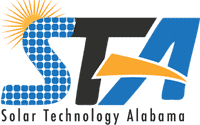
Local Service
Average cost
Pros
- Locally owned and operated
- Offers products from leading manufacturers
- Comprehensive service offerings
Cons
- Limited information available on website
Solar Technology Alabama is a local installer that has over a decade of experience working exclusively in AL. That means its technicians are familiar with the area and know how to size your system appropriately to keep costs down but also offset your above-average utility bills in the area.
This company carries a wide range of solar panel brands, many of which have above-average efficiency ratings that can help offset your high electricity rates and save you more over time.
This provider also offers more solar services than most in the area. These include the standard options — like panel and battery installations — plus uncommon options like solar water heaters and even solar refrigerators.
Unfortunately, this company doesn’t disclose its warranty information, but we assume that you at least get the manufacturer’s warranty for 25 years.
Facts and Figures: Solar Technology Alabama
| EcoWatch Rating |
|---|
| Better Business Bureau (BBB) Rating |
| Average Cost ($-$$$$$) |
| Solar Services |
| 4 |
| Not Rated |
| $$$ |
| Solar Panels, Solar Batteries, Solar Water Heaters, Off-Grid Solar Solutions |
Watch Below: What Should You Know About Recent Changes to the Solar Tax Credit?
How Can You Save Money When Hiring A Solar Company In Alabama
The average cost of a solar panel system in Alabama is around $42,780 before any benefit programs. This total assumes that you spend the local average of around $3.72 per watt on your equipment and need an 11.5 kilowatt (kW) PV system to fully offset your above-average electricity consumption.1
Despite the per-watt price being well below the national average of $3.33, this total is about $12,000 higher than the all-in national average because Alabamans usually need much larger systems than the average U.S. resident. However, most residents can get by without a system that offsets 100% of their energy use.
As such, most AL residents look for ways to save money when converting to solar, and, thankfully, there are a few things you can do to keep costs down. These include:
- Taking the solar perks that are available in the area
- Choosing a high-efficiency panel
- Getting multiple solar quotes
We’ll explain how these tips can help save you money in the sections below.
Take Advantage of Solar Benefit Programs
One of the best ways to save when converting to solar is to choose a company that can help you take advantage of the solar rebates and incentives in Alabama that are available to you. Unfortunately, Alabama isn’t the best place for solar perks, but there are some options to help you save money on your installation costs and boost your long-term savings.
We’ll provide some information for each of these perks in the table below.
| Solar Benefit Program | Program Description |
| Federal Solar Investment Tax Credit (ITC) | The federal solar credit is for 30% of what you pay for your system, which includes the labor and all equipment, like panels, inverters and batteries. It averages out to $12,834 in Alabama. That credit gets applied to the income taxes you owe for the year you install your system, and it can be rolled over for up to five years. |
| Property Tax Exemption for Renewable Energy Facilities | Normally, a home improvement that improves the value of your property also makes your property taxes go up. Since solar adds to your home value, it would also cause a detrimental increase in taxes.3 This exemption prevents that from happening, which limits the financial burden of converting to solar energy. |
| Local Efficiency Incentives | In addition to the solar perks above, there are some rebates and other financial incentives for energy efficiency upgrades, which many homeowners couple with solar installation. |
Choose a Company That Installs High-Efficiency Panel Brands
Another way to bring down your long-term system costs is to choose a company that installs panels that have a high efficiency rating. The more efficient solar panels produce more electricity in all situations, which means they’re better suited for an area like Alabama, where energy needs are far above average.4
High-quality and highly efficient solar panels — like Qcells and Maxeon — can sometimes be a bit pricier upfront, but in most cases, they’ll save you more in the long run. They can offset more of the high energy bills you’ll see in Alabama, which reduces your panel payback period and maximizes your energy savings.
Get Multiple Quotes for Your System
Finally, we suggest reaching out to a few different companies and getting multiple quotes. An identical solar array from three different companies will often yield three different price points, and the difference in cost can be hundreds or even thousands of dollars.
Although there aren’t many solar contractors in Alabama, it’s a good idea to get free quotes from three or four of them before choosing the one that best fits your budget and provides the best value.
You can use our free solar calculator to see how much a system on your home will cost on average and how much you can save by converting to solar power.
Will Solar Increase Your Home Value In Alabama?
Yes! The average home in the U.S. sees a value bump after going solar of around 4.1%, based on research done by Zillow. With the average home value sitting around $221,428, that means most residents will see an home value increase of approximately $9,078.6
We should note that since Alabama is not the most solar-friendly state, it’s possible that some buyers won’t see as much value in a solar energy system. As such, the increase could be a bit lower than the national average.
It’s also worth noting that customers of Tennessee Valley Authority (TVA) in northern Alabama see some additional incentives for solar from their electric company. Customers of Alabama Power — in the middle and southern part of the state — see none.
Due to the disparity in perks and pro-solar policies, we’d expect a more significant return on investment in northern cities, like Huntsville, Madison and Decatur, as opposed to Birmingham and Montgomery, which fall into Alabama Power territory.
Should Alabama Residents Hire a Professional Solar Installer Or DIY?
Since Alabamans can pay over $42,000 to install solar before any incentives, it’s often tempting to consider a DIY solar installation. Installing your panels yourself will typically cost about half the price and possibly even less.
However, while you’ll save money upfront with a DIY installation, there are some pretty significant drawbacks to DIY solar solutions and risks you’ll be opening yourself up to. These include:
- Less robust warranty coverage
- Lower panel efficiency available with DIY solar kits
- Higher risk of roof leaks and damage from tornadoes with DIY installations
Below, we’ll discuss why these factors make DIY solar installation a potentially more expensive solution in the long run.
Warranty Coverage Is Less Appealing
In an area like Alabama, where tornado activity is frequent and rainfall is nearly double the national average, warranties mean everything for your solar equipment. Equipment and workmanship warranties, specifically, can protect you from system damage and issues — like roof leaks — resulting from improper installation.
The warranty coverage for DIY panels is well below average. Equipment warranties last for around ten years as opposed to the 25-year average for professional systems. Efficiency warranties also last for around ten years as opposed to 20 to 25 years for professional systems.
You also get no workmanship warranty with DIY systems, whereas you’d see a ten-year labor warranty in most cases if you hired a professional installer. You might pay more to hire a pro, but you could also end up saving money in the long run if a DIY installation leads to property damage from improper installation techniques or panel damage that you need to pay for.
Panel Efficiency Is Lower for DIY Equipment
DIY solar panels are also less appealing in terms of their efficiency ratings. Professional panels usually top 20% efficiency and go up to 22.7%. DIY panels — like those from Renogy and Grape Solar — usually hover close to 15% but can reach higher than that in some cases.
While these differences might seem small, they lead to far less power production in all situations. In a place like AL, where the energy needs are well above average, it’s best to have efficient panels that can keep up with demand. DIY panels will often not be able to and can end up saving you less over time on your utility bills, effectively costing you more.
Solar panel degradation is another important thing to consider. All panels degrade in efficiency, but professional panels can come with guarantees that efficiency won’t dip below 90% over 20 to 25 years. DIY panels often either come with no efficiency guarantee or have a steeper degradation over just ten years.
Property Damage Is More Likely With DIY Installations
Finally, DIY solar installation is risky no matter where you live because you open yourself up to roof leaks and other property damage from improper installation techniques.
It’s especially risky to do a DIY installation in a place like AL. Tornadoes can rip improperly installed panels off of your roof, causing panel destruction and roof damage. The above-average rainfall in Alabama also means that roof leaks are inherently more likely, and any issues with the installation can promote leaking even more.
Again, you might pay more to hire a professional, but over time, the investment in solar might cost you less if you don’t install your panels yourself.
What Should Alabamans Look For in a Solar Installer?
There are a few things we recommend prioritizing in a solar installer if you’re looking to convert to renewable energy in Alabama. These include:
- Robust warranty coverage
- High-efficiency panel brands
- Battery installations
- Local experience
In the following sections, we’ll explain why we think these are the most important factors when choosing an installer in your area.
Robust Warranty Coverage
First off, we suggest choosing an installer that provides good warranty coverage, at least in line with the industry average. As mentioned above, AL homes and solar power systems are prone to some unique weather events that put them at risk, including tornadoes and heavy rainfall.
A company that provides long-lasting warranty coverage for the equipment and its workmanship will not only keep your system protected and minimize ongoing repair and replacement costs but will also provide some peace of mind that your investment is well protected.
The industry averages we suggest looking for include 25 years of coverage for the equipment, 20 to 25 years for the panel efficiency and at least ten years for the labor.
High-Efficiency Panel Brands
Next, we suggest choosing a company that carries high-efficiency panel brands. Some of the brands that should work well include:
- SunPower (now called Maxeon)
- REC
- Qcells
- Canadian Solar
- Trina Solar
Panels that have a high efficiency rating are far more likely to keep up with the above-average demand for electricity in Alabama. Keeping up with demand means minimizing your electric bills and saving you more over time.
Battery Installations
We also suggest considering a solar panel company that also offers solar battery units. As we explained earlier, Alabama is one of the few states that doesn’t mandate net energy metering. That means all excess energy you produce will get sent to the grid, and you won’t get compensated for it.
Having no net metering or interconnection benefits means you won’t have energy credits to offset electricity consumption at night or on cloudy days, which minimizes your energy savings over time. A battery can effectively act like net energy metering, as you can store excess energy and call on that when you need it rather than paying for energy from the grid.
Local Experience
Finally, we recommend prioritizing companies that have at least five years of experience in the industry. New companies are more likely to run into issues during the solar installation, which could open you up to damages from tornadoes or excessive rainfall.
Choosing an experienced company will help avoid issues stemming from inexperience, and established companies are also more likely to stay in business, which means they can continue to honor your warranties.
Methodology: How We Ranked Alabama’s Solar Companies
At EcoWatch, our goal is to provide you with the best information on solar providers for your specific needs. That means we base our rankings on the factors that we believe are most important for you to have a positive experience and maximize your savings. Our ranking is based on the weighted factors below:
- Solar Warranty & Customer Support (20%)
- Solar Services (20%)
- Price & Payment Options (20%)
- Qualifications, Reputation & Certifications (10%)
- Experience (10%)
- Availability (10%)
- Environmental, Social and Corporate Governance Factors (10%)
Our methodology is never influenced by industry partnerships, and we’re always transparent about how our ratings are created. We’ll explain why we put so much value on these factors above in the following sections and how they are likely to influence your overall experience with going solar.
Solar Warranty & Customer Support
First, we look at the warranty coverage offered by each provider and how likely it is to keep you and your system protected from damage from tornadoes and above-average rainfall. We also consider efficiency warranties, as those will help ensure your panels continue to offset the above-average electric bills in the area for years to come.
We use a baseline of 25 years for equipment, 20 to 25 years for efficiency and ten years for labor. Companies that provide longer warranty coverage get ranked higher.
Solar Services
All solar installers will, of course, install panels, but we give precedence to providers who offer panels, batteries and energy audits. Batteries, in particular, are a great option for Alabamans who don’t have access to net metering.
We award bonus points in this category to solar panel companies like Solar Technology Alabama that offer additional products and services, like solar water heaters and off-grid solar.
Price & Payment Options
Since the average cost of a solar panel system in AL is far above the national average, we prioritize companies that keep solar affordable and accessible in the area. This includes those that have average or below-average pricing and those that offer a variety of payment options.
A company receives a perfect score in this category if it has affordable prices, accepts cash payments, solar loans, leases and PPAs and provides in-house financing with appealing and accessible loan terms.
Qualifications, Reputation & Certifications
Next, we look for additional qualifications and certifications that help establish the provider as a leader in the local industry or a particularly reputable installer. Some things we look for include:
- NABCEP certified (the North American Board of Certified Energy Practitioners)
- Certification from LEED (Leadership in Energy and Environmental Design)
- Positive reviews on Google — at least 100 solar reviews at four stars or higher
- Accreditation from the Better Business Bureau
- Certification from the Building Performance Institute (BPI)
We also detract points in this category if the company has a history of lawsuits or customer complaints.
Experience in Alabama
We look for at least five years of experience in the industry and locally as a baseline for all companies, and we rank those with ten or more years even higher.
Local experience is crucial in an area like AL, where unique weather conditions like heavy tornado activity and above-average rainfall put undue strain on systems.
Experienced companies can not only provide peace of mind that the installation is being done correctly but can also help guarantee that your system is sized appropriately to offset your high energy bills.
Availability
Since solar adoption has been notoriously slow throughout the Cotton State, many installers in the state designate service to high-population areas to maximize their upside. While that’s not necessarily a bad thing, it does mean that a lot of customers throughout the area will not be able to get service from them.
For this reason, we rank companies higher that serve the entire state, as they will appeal to more of our readers.
Environmental, Social & Corporate Governance Factors
Finally, we look at the impact each installer has on the environment and the people they serve, as well as how reputable they are as a whole. We look for the following and rank them accordingly:
- Public data disclosures
- Attention to reducing their carbon footprint and remaining as sustainable as possible
- Offering panel recycling to reduce the strain on the environment
- Charitable donations
- Special offerings for low-income households looking to convert to solar
- Affiliations with solar organizations that help push the industry forward
The cost information presented in this article is derived from a comprehensive analysis, incorporating data from multiple industry sources. The average cost per watt per state was calculated based on figures from Consumer Affairs, Energy Sage, and Berkeley Lab’s Electricity Markets & Policy Department. Additionally, monthly energy consumption and the average monthly cost of electricity were sourced from the U.S. Energy Information Administration, ensuring a well-rounded and accurate representation of the information presented.
FAQ: Best Solar Companies in Alabama
Despite the slow adoption rate for solar in AL, we still get lots of questions from residents about how to find a reputable installer in their area. We’ll answer some of the questions we see most often below.
It’s hard to dictate which company will be the most affordable solar installation company in Alabama because the cost of a solar energy system varies depending on factors specific to each household. Generally, the more you are able to customize your solar PV system, the more affordable you can make it.
With that being said, there’s a good chance Solar Technology Alabama would be the most affordable, as it partners with solar power wholesale dealers like AEE that carry a wide variety of brands. However, the only way to truly determine how much solar panels will cost in Alabama is to get free quotes from multiple solar energy companies and compare each rate.
Any homeowner who installs solar panels in Alabama is eligible for a federal tax credit (also called the solar investment tax credit). But don’t forget to ask each installer if there are any local solar incentives or rebates you qualify for.
According to the Solar Energy Industries Association (SEIA), there are 43 solar providers in Alabama, but only 14 of them perform solar project installations.
Alabama is no stranger to severe weather. With its humid subtropical climate, it sees heavy rains, hot summers, tornadoes and hurricanes. Severe weather can put a lot of wear and tear on a rooftop solar system, and for this reason, we recommend giving special consideration to solar companies in Alabama that have:
- Experience with weatherization
- Workmanship and roof warranties
- Local knowledge of weather and policy
- Industry experience rather than a newcomer on the Alabama scene
Bigger national providers (like SunPower) are not necessarily better in Alabama. The benefits of a larger company typically include better technology, speed of service, and warranty coverage. However, smaller companies may offer more personalized service, better prices (in some cases), and more local knowledge about things like weather, policy, and benefits of solar for Alabamians.
Top Solar Installers in Alabama Cities
Comparing authorized solar partners
-
- NABCEP-certified technicians
- Offers products from leading manufacturers
- Locally owned and operated
- Award-winning company
- Relatively young company
- Limited information available on website
- Slightly limited service offerings
A+Outstanding Regional Installer
Having trouble deciding? Click below and use our process to receive multiple quotes instead:

 233k
233k  41k
41k 
